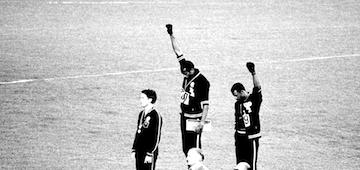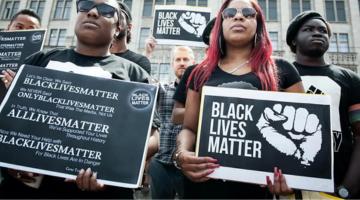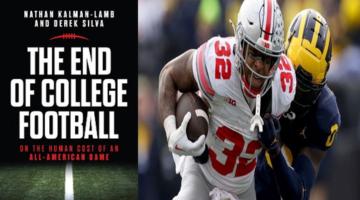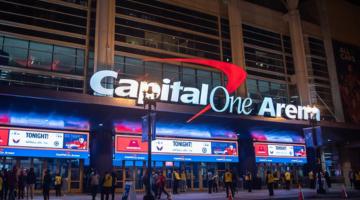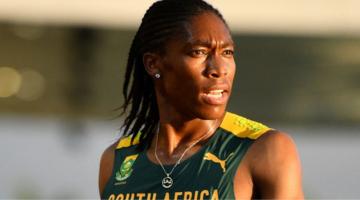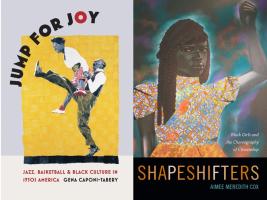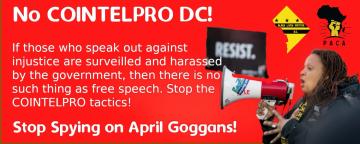Michael Bennett tells it like he sees it in his new book, and shows with fine literary flair that he’s never acclimated to the NFL plantation.
“...the game depends on the players in both the NCAA and the NFL...”
At age eleven, in Independence, Louisiana, Bennett lifted a tractor with his bare hands to keep it from falling on his grandfather. His astonished cousins stared, motionless till one finally said, “You strong as fuck!” Now, twenty-two years later, he’s a 6’4”, 274-pound defensive lineman playing for the Philadelphia Eagles after four NCAA years with Texas A & M, three years with the Tampa Bay Buccaneers, and four with the Seattle Seahawks. In August 2017, he was in a Las Vegas bar when what sounded like shots rang out and he ran for the door like everyone else who didn’t lie flat on the floor to get out of the line of fire. Outside, Las Vegas cops jumped him,held a gun to his head, and threatened to blow it off.
They couldn’t have chosen a better target to prove that the US is a racist police state. When Bennett’s not playing football, he’s a devoted family man, Christian, social justice activist, philanthropist, and community organizer. He hired Oakland attorney John Burris, well-known for police brutality and racial-profiling cases, to file an as-yet unsettled lawsuit against the Las Vegas Police.
“Las Vegas cops jumped him, held a gun to his head, and threatened to blow it off.”
"Things That Make White People Uncomfortable" is Bennett’s autobiography written with Nation sportswriter David Zirin. Despite its gravitas, it’s full of mirth. In the first chapter, Bennett describes a family move from a rough Los Angeles neighborhood to Houston: “After that, we moved our asses to Texas. You know it’s bad where you’re living when you’re worried about guns and see Texas as a safe alternative.”
Later he talks about sharing a bedroom with his younger brother Martellus, a former NFL tight end: “We had bunk beds, but Tellus got bigger and heavier, growing up to six feet six and 270 pounds, and he was on the top bunk—until it collapsed. I’m still mad about that shit.”
Bennett also reminds us why 70% of NFL players are Black: “I never thought I was going to the NFL. I never believed, ‘This is exactly what I want to do. This is the dream.’ But when you’re big and Black, the grown-ups push you to play sports. They take an interest that is hard to ignore or resist.” He later realized that NFL football was indeed his best chance to take handsome care of his family and went for the brass ring.
“When you’re big and Black, the grown-ups push you to play sports.”
Chapter 2, "The NCAA Will Give You PTSD," made me feel sick and uncomfortable, despite comic moments. It’s about the big money-making machine that chews up college players then spits out the 99% who don't make the pros... often with lifelong injuries and no health insurance. At Texas A & M, Bennett and his brother Martellus had white coaches, and 70% of the players were Black. Pro sports are often called plantations, and the NCAA is no different except that the players are living on peanuts, literally. Or junk food.
Looking back, Bennett says NCAA players should organize to demand $50,000/yr. deposited in an IRA or some similar instrument, and no one should tell them the money's not there since the universities and cable networks make billions on them while they risk their health. That way the 99% who aren't drafted wouldn't leave the NCAA devastated by failure, maybe even crippled for life, and with nothing to show for it. He also says coaches and advisors encourage players not to pursue challenging academics so they'll have plenty of time to practice and won't risk being disqualified. He wanted to study sociology but was steered into agriculture, which was easy for him because he’d spent his early life on a farm.
“The big money-making machine that chews up college players then spits out the 99% who don't make the pros.”
To his and his family’s shock, Bennett went undrafted out of Texas A&M, but he was then called into the Seattle Seahawks training camp, signed by Tampa Bay, then by the Seahawks again, and then traded to the Eagles. In 2017, Sports Illustrated ranked him the 17th best of nearly 1700 NFL players. Not being drafted made him “ready to bust through any door, any window, any skylight to make it . . . to prove my doubters wrong.”
As to why he went undrafted, he says: “I didn’t get drafted—I am sure of it—because NFL scouts talk to coaches to get the inside word on how ‘coachable’ a player is, and I think they said I was ‘different.’ They said I read books and asked questions and wanted to discuss Christianity and Islam. In any other job, an employer might think, ‘Hey! That’s a deep thinker. That’s a serious person. That’s a plus.’ The NFL, though, would have preferred it if I had a DUI and an arrest record.”
Loving the game, hating the pain
Bennett loves the brotherhood of the NFL. He loves coming out of the tunnel to cheering fans at home. He loved winning the Super Bowl with the Seahawks in 2014 and celebrating when his younger brother won with the Eagles in 2018. He loves the fans and “loves hating quarterbacks.” If you’ve ever seen one of his celebratory “sack dances”—after sacking a quarterback—you know he loves the game. He also loves making enough money to take care of his family and help his community, which he does generously.
He loves all that, but in the end he says that his brother calls the NFL “Niggas for Lease,” and that’s the most brutally honest thing he’s ever heard. He hates the pain and the risk of disability and/or premature death from heart attack or concussion injury. He hates “the daily fear that you could just lose your brain; there is literally a bomb that could go off inside your skull on every play.” For the last seven years he’s been playing with a bad toe that has to be numbed with a six-inch needle before every game. There are shoes he can’t wear.
“His brother calls the NFL ‘Niggas for Lease.’”
By the time I’d finished Chapter 3, “NFL Reality,” I was convinced that this sport should no longer be played and all but sure that Bennett feels the same way. He has three daughters and no sons, and says he’s glad of that because, “I felt like I had to play football. Any son of mine would not. He’d be pressured by friends and coaches to play, and he would hear from his mom and me that the safety of his brain and body was too important for all that.”
In this Bennett echoes Lakers star LeBron James, the biggest name in basketball. LeBron played both football and basketball in high school, determined to go pro in one sport or the other, but doesn’t let his own sons play football. “I needed a way out of poverty,” he says. “My kids don’t.”
Could the rules be changed to make American football less of a gladiator sport? It’s hard to imagine the fans would have it any other way. As it is, football remains America’s favorite sport. And is it any wonder that the most popular sport in the US is played nowhere else in the world—that it is the unique sport of a nation founded on slavery and genocide, with armed force that dwarfs all others, and mass shootings year round? Or that the players are 70% Black and the owners all white?
Black Lives Matter
Bennett sat down during the national anthem shortly after Colin Kaepernick and Eric Reid took a knee. He hadn’t known Kaepernick as anyone but another quarterback to sack, but he called him right after his first anthem protest, and soon there were 30 or 40 players on the line in a chaotic conversation about the best protest stance to take during the anthem. Bennett finally said, “Do what you feel is right. It doesn’t have to be taking a knee. It could be doing a back-flip. We don’t all have to agree on the idea of what we need to do, but we all have to agree on the message. The message needs to be that there are a lot of racial injustices going on in America. However you want to make a stance, be like Nike and just do it.”
Some players took a knee, others remained seated, locked arms, or raised fists in the air like Olympic athletes Tommie Smith and John Carlos at the historic 1968 Olympics. At the first Oakland Raiders game of 2017, the ever-enigmatic Marshawn Lynch sat on a cooler eating a bananatill the anthem was over but declined to say why, except that he’d always sat for the anthem so that was just him being him.
“We don’t all have to agree on the idea of what we need to do, but we all have to agree on the message.”
“Be like Nike and just do it” may remind readers that players have consistently refused to object to Nike’s exploitation of sweatshop Asian labor. In 1996, most Nike workers'monthly wages were roughly equal to the US price of a pair of Air Jordans ($115), and most of the workers were women. Michael Jordan saidthat was Nike’s problem. (When it came out that teenagers were robbing each other for their Air Jordans, Nike said that was society’s problem.)
In “Things That Make White People Uncomfortable,” Bennett says any number of times that the players can exercise far more power for social change than they do, and he’s thrown himself into it in far more ways than I could elaborate here. He’s not afraid to say that the game depends on the players in both the NCAA and the NFL. There’s a chapter in his book titled “Athletes for Impact,” which is the name of the multisport pro social-change organizationthat players came together to create in 2016 with a mission, vision, and values statementthat couldn’t be much better. Bennett seems to be the face of the franchise, so to speak, and its campaigns include police violence, the economy, gun safety, LGBTQ and equal rights, education, climate change, immigration, and mass incarceration. Perhaps we’ll see the day when “Nike” is added to the list. The athletes do have the power to take it on, along with all the other sports sneakers and apparel manufacturers exploiting sweatshop labor.
“Social change requires solidarity, even—if not especially—in the world of sports.”
In the “Athletes for Impact” chapter, Bennett writes:
“We need everyone on the playing field who is conscious to come together in a single organization to support each other when we speak out. We need to have each other’s backs and we need to be willing to act, together. So much value in our society is placed on the individual. The 'great man' myth is a big part of our culture. Everyone is supposed to rise or fall on their own hard work and achievement. But social change requires solidarity, even—if not especially—in the world of sports. When you look at history, any time our country has moved in the direction of fairness and justice, a lot of people acted together to make it happen.”
Knocking the snot out of the St. Louis Rams
So as not to forget that, for all his admirable values, Michael Bennett can be hella funny, here’s a closing quote:
“We played St. Louis just two weeks later, and the players on the Rams came out on the field with the 'Hands Up, Don’t Shoot' pose. When I saw them with their hands up, I was all for it. Those who did it were all offensive players, like wide receiver Kenny Britt and running back Tre Mason. I was so proud of them it almost made me sad that I was going to have to knock the snot out of them. I supported the Rams’ action especially because Ferguson is a forgotten part of their city, and as they were bringing Michael Brown’s death to Monday Night Football, a military crackdown was happening just a few miles away. It takes that kind of solidarity to make any kind of change.”
Ann Garrison is an independent journalist based in the San Francisco Bay Area. In 2014, she received the Victoire Ingabire Umuhoza Democracy and Peace Prizefor her reporting on conflict in the African Great Lakes region. She can be reached at ann@anngarrison.com.
COMMENTS?
Please join the conversation on Black Agenda Report's Facebook page at http://facebook.com/blackagendareport
Or, you can comment by emailing us at comments(at)blackagendareport.com.

